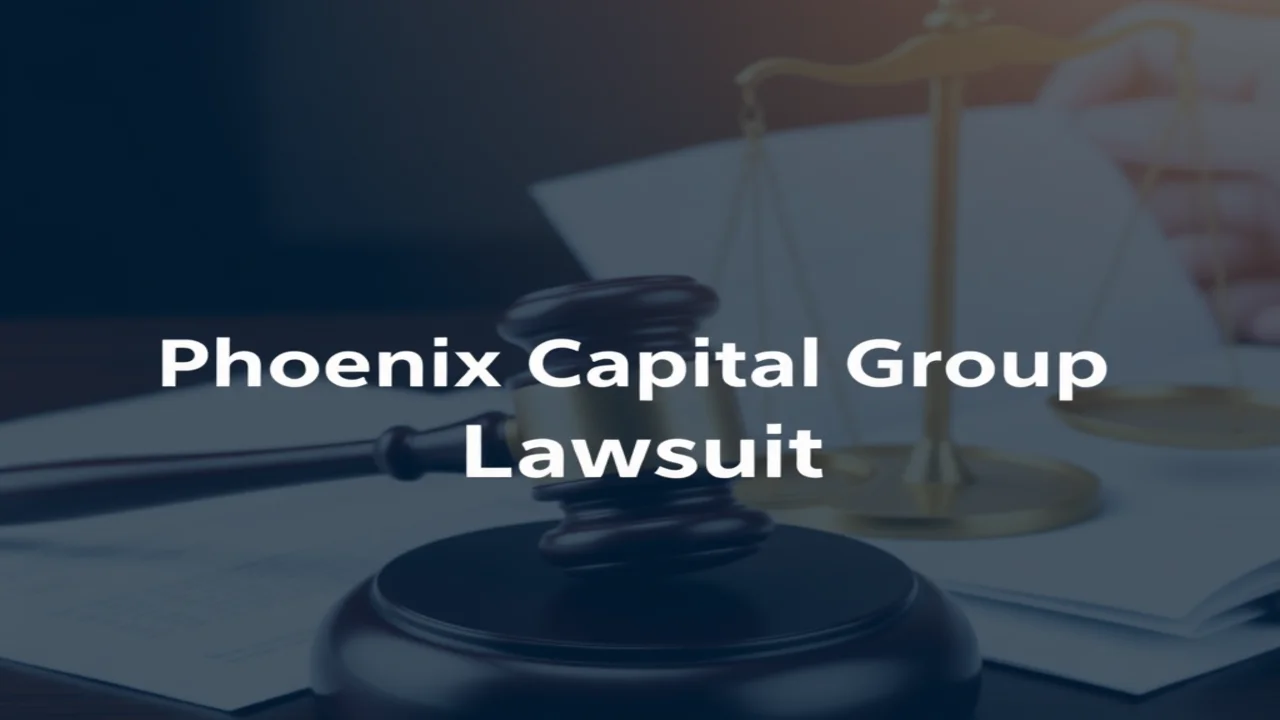Introduction
“Recent litigation has brought Phoenix Capital Group into the spotlight. The company is well-known in the financial services sector for its investments in mineral rights to oil and gas. As details of the Phoenix Capital Group lawsuit unfold, professionals in the field, investors, and regulatory agencies have all taken an interest in and expressed concern over these court battles. While offering a thorough summary of the legal difficulties Phoenix Capital Group has faced, this article dives into the essentials of these lawsuits, investigating their causes, consequences, and possible resolutions.”
Who Is Phoenix Capital Group?

Among Phoenix Capital Group’s many areas of expertise is the acquisition of mineral rights, which the company uses to finance its oil and gas investments. Innovative investment strategies and strong industry knowledge are the company’s proudest achievements. A cloud has been cast over its otherwise remarkable track record due to recent lawsuits that have cast doubt on its business practices. A deeper dive into the company’s energy sector role and the specifics of its legal disputes is necessary to make sense of these lawsuits.
Key Legal Disputes Faced by Phoenix Capital Group
Defamation Lawsuit Against William Francis and Incline Energy Partners
William Francis and Incline Energy Partners, L.P. are the defendants in Phoenix Capital Group’s infamous defamation case. The corporation states that it was unfairly competed with and suffered damage to its reputation in this case.
Nature of the Allegations
William Francis and Incline Energy Partners were accused by Phoenix Capital Group of making defamatory statements that ruined its reputation in the cutthroat oil and gas industry. According to the corporation, these remarks hurt their bottom line and damaged their relationship with investors.
Court Proceedings and Decisions
In a partial dismissal of Phoenix Capital Group’s claims, the trial court ruled under the Texas Citizens Participation Act (TCPA). While dismissing claims of conspiracy and unfair competition, the Texas Court of Appeals subsequently overturned this decision for claims of defamation per se.
Impact on Phoenix Capital Group’s Reputation
The lawsuit cast doubt on the honesty and integrity of Phoenix Capital Group. Companies in high-stakes industries confront reputational risks, which were brought to light by the court proceedings that sought to resolve the defamation claims.
Legal Framework: TCPA and Free Speech
Free speech and the avoidance of needless litigation are the goals of the TCPA. The complicated nature of balancing corporate interests with the rights of individuals to express opinions and criticisms is illustrated by the Phoenix Capital Group case.
Implications for the Industry
If this case goes to trial, it might change the way oil and gas companies approach defamation and unfair competition claims in the future.
Montana Supreme Court Decision on Forced Pooling
The Montana Board of Oil and Gas Conservation, Kraken Oil and Gas LLC, Phoenix Capital Group, and the other parties were involved in another major legal dispute. The contentious method of forced pooling was at the heart of this lawsuit.
Understanding Forced Pooling
Companies can optimize resource extraction by consolidating mineral rights from multiple owners through forced pooling. In an appeal against the statutory risk penalties levied on its interests, Phoenix Capital Group contested Kraken’s pooling endeavors.
Court Rulings
The ruling that Kraken Oil and Gas LLC received from the Board was affirmed by the Montana Supreme Court. Prior to resorting to forced pooling, Kraken had made sincere attempts to negotiate with Phoenix Capital Group, according to the court.
Significance of the Ruling
Companies are required to negotiate in good faith, and the ruling upheld the legal framework controlling forced pooling. A possible financial setback for Phoenix Capital Group, it was a legal setback.
Investor Concerns
Investors were concerned about Phoenix Capital Group’s capacity to protect its assets and successfully handle regulatory hurdles after the forced pooling dispute.
Broader Industry Impact
Discussions on possible changes to forced pooling regulations sprang out of the case, which brought attention to the fine line between optimizing resources and protecting individual rights.
Legal Disputes with Kraken Oil and Gas
Beyond forced pooling, Phoenix Capital Group was embroiled in a web of claims against Kraken Oil and Gas for unfair practices and disputes over competitiveness.
Key Issues in the Dispute
Claims of unfair penalties, contract breaches, and statutory violations were all part of the litigation. These problems are a reflection of the intense competition that exists in the gas and oil industry.
Court’s Perspective
Several times, the courts sided with Kraken, stressing the importance of following statutory standards and fair treatments. Compliance and transparency are two aspects of business operations that were emphasized by these rulings.
Repercussions for Phoenix Capital Group
The necessity for strong legal strategies and proactive risk management has been highlighted for Phoenix Capital Group by these legal battles. Concerns about possible regulatory scrutiny were also heightened by the disputes.
Stakeholder Reactions
Everyone was watching the proceedings with rapt attention, which is a reflection of the general fear of legal risks and how they might affect financial returns.
Strategic Lessons for the Industry
The Kraken disputes highlight the significance of well-defined agreements, honest negotiations, and following the rules when it comes to avoiding problems and building trust in the industry.
FAQs
What is the status of the Phoenix Capital Group lawsuits?
The lawsuits are at varying stages, with some cases resolved and others ongoing. Court rulings have significantly impacted the company’s legal and reputational standing.
What are the implications of these lawsuits for investors?
The lawsuits have raised concerns about the company’s operational transparency and financial stability, potentially influencing investor confidence.
How has Phoenix Capital Group responded to these legal challenges?
The company has pursued legal remedies while maintaining its commitment to ethical business practices, emphasizing its focus on protecting investor interests.
What is the significance of the Montana forced pooling case?
The case highlighted the complexities of forced pooling regulations and the importance of good-faith negotiations in resolving resource disputes.
What lessons can other companies learn from these legal disputes?
The cases emphasize the need for robust legal compliance, transparent business practices, and proactive stakeholder engagement to mitigate risks and enhance industry reputation.
Read More: Essential times when using a family lawyer is essential
Conclusion
Disputes in the high-stakes oil and gas industry are notoriously complex, as the legal challenges faced by Phoenix Capital Group have shown. The Phoenix Capital Group Lawsuit serves as a prime example, involving cases such as forced pooling controversies and defamation lawsuits that have put the firm’s honesty, openness, and resolve to the test. The results highlight the necessity for strong legal strategies and compliance, but they also have mixed consequences for the firm’s credibility and the trust of investors. The future of the company will be greatly influenced by its adaptability and adherence to industry standards as it tackles these challenges. No one involved in the energy sector can afford to ignore the lessons taught by these instances.

Karen Altizer is a seasoned professional with a wealth of expertise in marketing and communications, adept at crafting compelling narratives and strategic messages tailored to various stakeholders.

